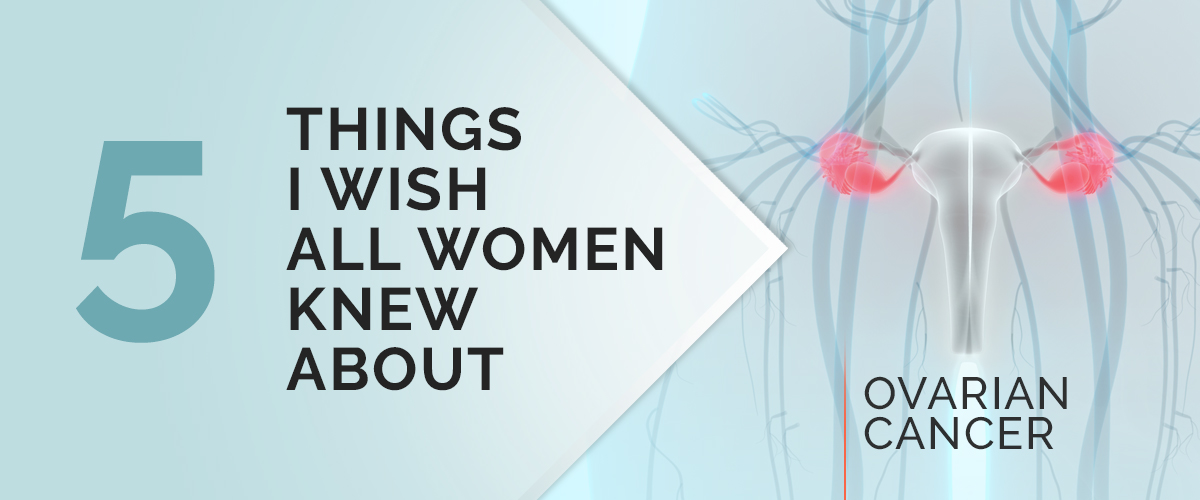Ovarian Cancer: 5 Facts Every Woman Should Know
Find out the risk factors and how to spot the symptoms of ovarian cancer.

This year, about 20,000 new cases of ovarian cancer will be diagnosed in the U.S. and more than 13,000 women and gender non-conforming people will die from the disease, estimates the American Cancer Society. That’s because ovarian cancer is difficult to detect, especially during the early stages.
Dr. David Fishman, vice chair of obstetrics and gynecology and the director of gynecologic oncology at NewYork-Presbyterian Queens, says a paradigm shift in how we approach the treatment and prevention of ovarian cancer is needed.
“Ovarian cancer takes the lives of far too many women each year,” says Dr. Fishman, a professor of clinical obstetrics and gynecology at Weill Cornell Medicine. “Because of misdiagnosis and a lack of awareness that all women are at risk of developing ovarian cancer, it is often diagnosed too late. It’s important for women to know their risk of developing this disease and its earliest warning signs.”
Dr. Fishman shares with Health Matters five facts that every woman should know about ovarian cancer.
1. Know the symptoms.
Early symptoms are easy to ignore and may include bloating, abdominal pain, feeling full quickly, and frequent urination. Other symptoms include fatigue, irregular vaginal bleeding, unexplained weight gain or weight loss, constipation, and back pain. If you experience any of these symptoms for two weeks and they are not normal for you, consult a physician and, if appropriate, ask for additional testing to see if your ovaries have abnormalities. The signs may be non-cancer related issues but it’s good to have them evaluated by a doctor.
2. Pap tests do not detect ovarian cancer.
Many patients believe that a clean Pap test means that they are clear of ovarian cancer. This is not the case. A Pap test diagnoses cervical disease and is not a tool to diagnose ovarian cancer. No routine screening is available for ovarian cancer.
3. Know the risk factors.
A woman’s risk of developing ovarian cancer is about 1 in 87, according to the American Cancer Society. One of the best ways to evaluate your risk is based on your personal and family history, as women whose family members have had ovarian cancer have an increased risk for the disease.
Genetics can play a role. The most significant risk factor for ovarian cancer is inheriting a genetic mutation recognized as being at-risk for ovarian cancer such as a BRCA1 (breast cancer gene 1) or BRCA2 (breast cancer gene 2) mutation. Since genes such as these are linked to both breast and ovarian cancer, women who have had breast cancer are at an increased risk of ovarian cancer. Uterine, colon, and rectal cancers are also associated with an increased risk of ovarian cancer. To determine if you are at high risk of ovarian cancer, you should consider being evaluated by a board-certified genetic counselor.
Other risk factors include increasing age, obesity, infertility, having children later, and never having a full-term pregnancy.

Dr. David Fishman
4. Certain factors may reduce your risk of ovarian cancer.
According to the Centers for Disease Control and Prevention, women who use birth control pills for five or more years, have given birth, who have breastfed for a year or more, or have had a hysterectomy or tubal ligation are at a reduced risk of ovarian cancer.
Women can lower their risk of ovarian cancer by having their fallopian tubes removed, if they are having a pelvic surgery anyway and are finished having children, because many ovarian cancers begin in the fallopian tubes. Patients with a high risk of ovarian cancer may be advised to undergo removal of the ovaries and fallopian tubes, even if they aren’t having another gynecologic surgery. Women should speak with their doctor about whether this surgery is appropriate for them.
5. When detected early, ovarian cancer is very treatable.
If ovarian cancer is discovered early and is confined to the ovary (stage 1), depending on the type of ovarian cancer, the American Cancer Society notes that patients have on average a 93% five-year survival rate. That is why it’s critical to consult with a physician at the first sign of any symptoms.
NewYork-Presbyterian Queens’ Risk Assessment and Cancer Prevention Program provides comprehensive, high-quality and innovative care to patients whose personal or family history or genetic makeup increases their risk of cancer. Working with cutting-edge technology, board-certified genetic counselors and gynecologic oncologists collaborate to create a personalized prevention and care plan for each patient.
Additional Resources
Learn more about gynecologic cancer care at NewYork-Presbyterian Queens.

